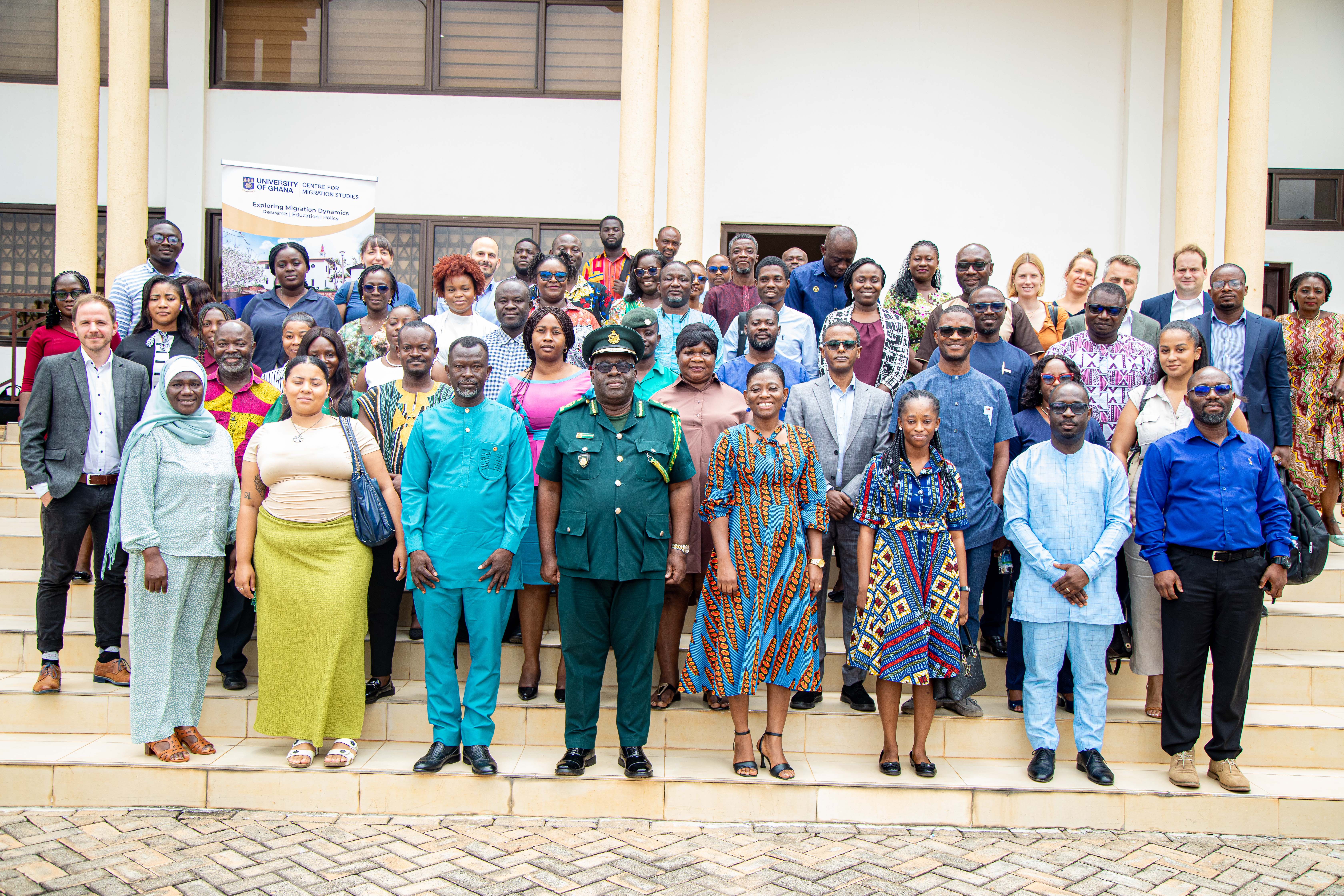GIZ-CMS Matching Study Reveals Opportunity to Align Ghana’s Workforce with Germany’s Labor Needs
A landmark study by the Centre for Migration Studies (CMS) at the University of Ghana, in collaboration with the German Agency for International Cooperation (GIZ), has revealed a significant opportunity to bridge the gap between Ghana’s surplus of skilled labor and Germany’s acute workforce shortages. The findings of the study, launched at a conference at the University of Ghana’s ISSER Conference Hall on October 2, 2024, highlight the potential for mutually beneficial labor migration between the two countries.
Among other things, the study showed that Germany is grappling with a dwindling workforce, particularly in critical sectors such as construction, IT, and manufacturing, while Ghana faces an unemployment crisis with nearly six million jobless citizens, many of whom possess technical qualifications. The study identifies these complementary challenges as an opportunity to align Ghana’s skilled workforce with Germany’s labor demands through structured and ethical migration pathways.
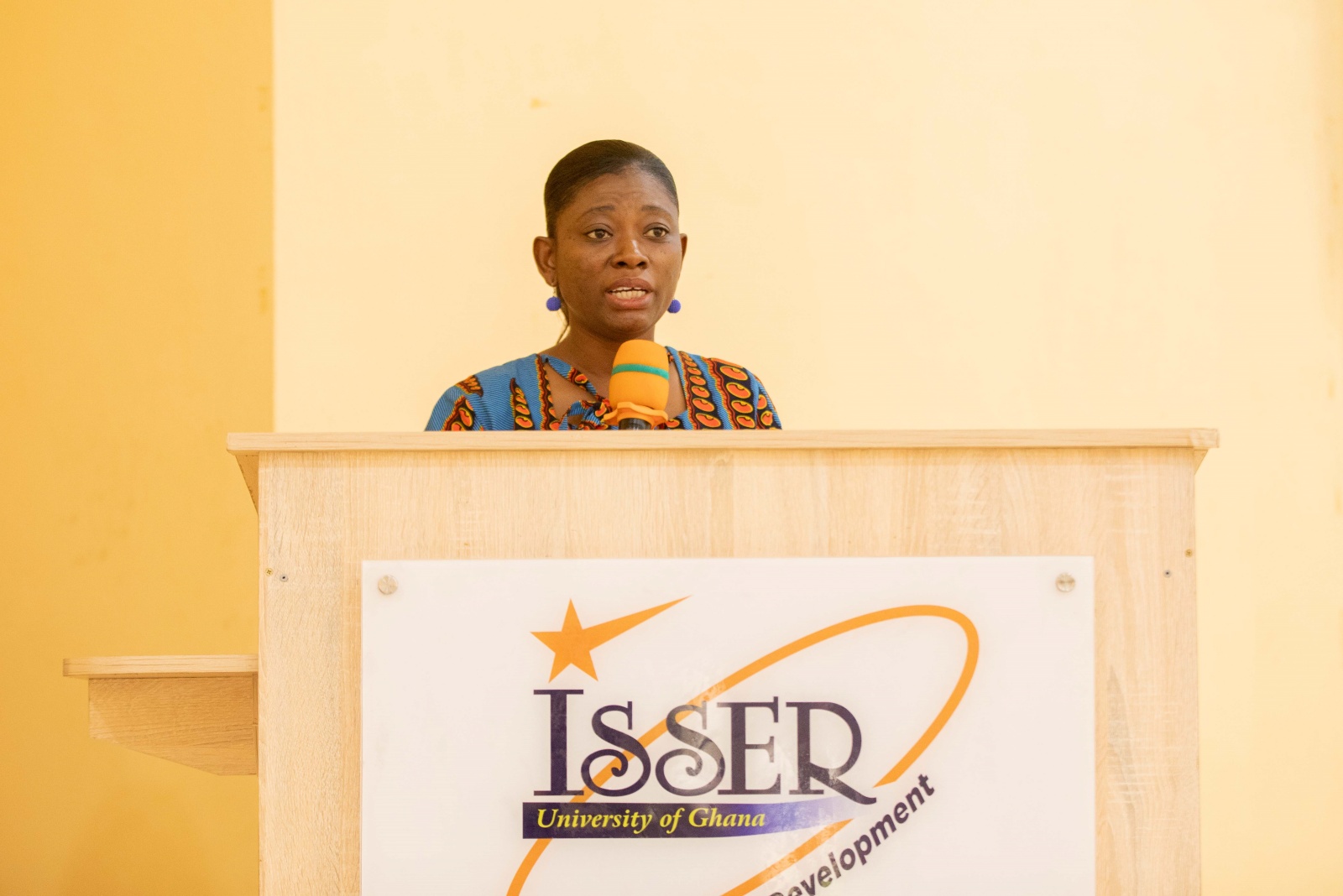
“This study provides a solid foundation for understanding the challenges and opportunities in labor migration between Ghana and Germany,” said Prof. Mary Boatemaa Setrana, Director of CMS, who doubles as the IDRC Research Chair on Forced Displacement. She added “It underscores the importance of aligning our technical and vocational education systems with global labor market needs while ensuring migrants are adequately prepared for the transition. Such partnerships must be grounded in ethical principles and mutual benefit.”
In his opening remarks, Mr. Andreas Berding, Manager at GIZ, emphasized the importance of addressing labor shortages in Germany while creating economic opportunities for Ghanaians. “Matching Ghanaian skills with Germany’s labor market demands is not only critical for addressing unemployment in Ghana but also for sustaining Germany’s economic growth. This study will be an invaluable resource for policymakers, practitioners, and researchers,” he stated.
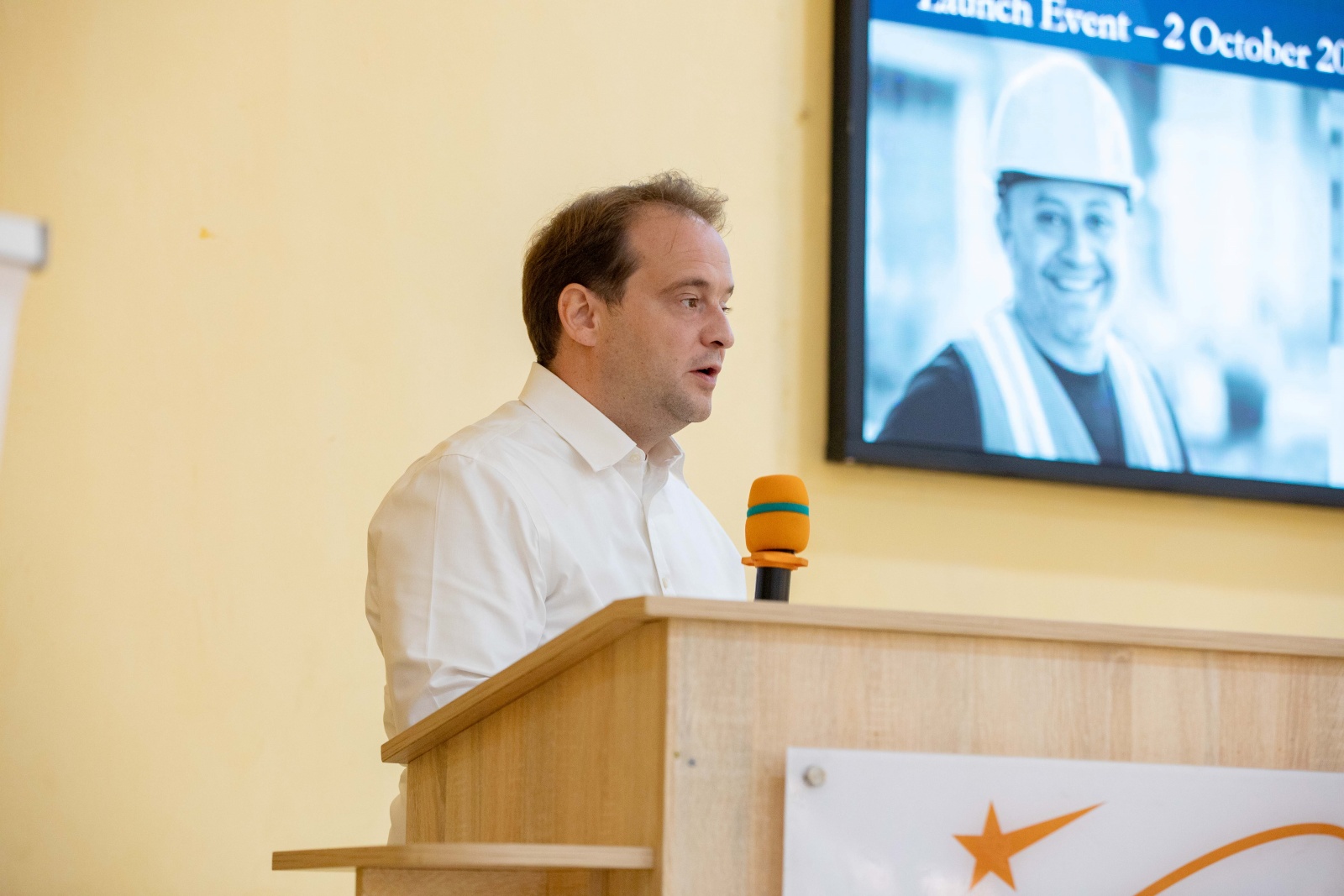
Mr. Benedikt Coekoll, representing the German Labour Mobility Partnership (LaMP), illustrated the opportunities through the story of a Ghanaian HND graduate, Beatrice, who could transition to Germany’s workforce via various pathways, including skilled worker visas and apprenticeships. “Our goal is to make migration safer, smarter, and mutually beneficial by addressing systemic challenges in both countries’ migration ecosystems,” he said.
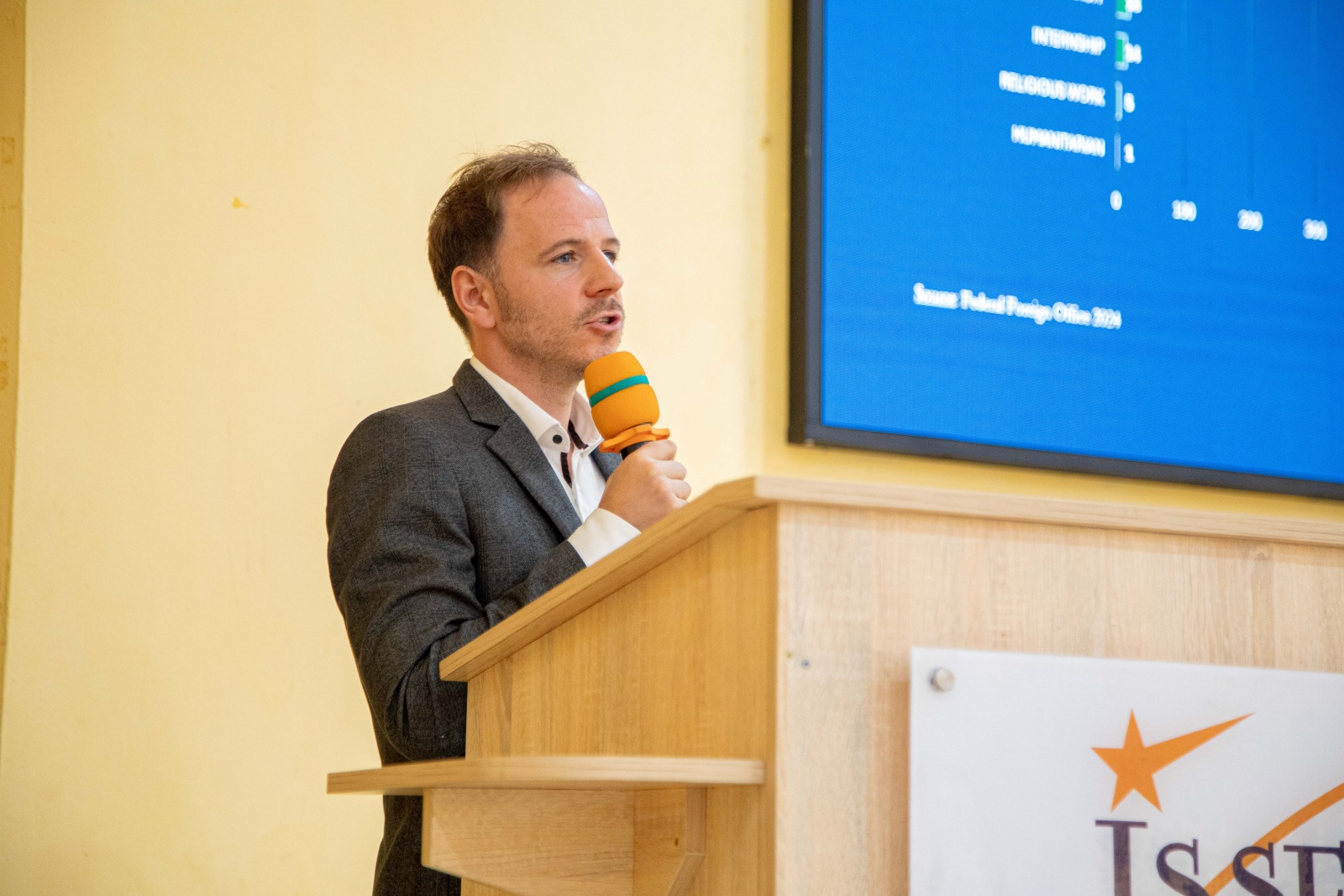
Background to the Study
The GIZ-CMS Matching Study was conceived to address two pressing issues: Ghana’s high unemployment rate and Germany’s critical labor shortages. Both nations face demographic and economic challenges that necessitate innovative solutions. While Germany’s aging workforce struggles to meet demand in sectors like healthcare, IT, and construction, Ghana's youthful population encounters limited job opportunities domestically.
Supported by the German Federal Ministry for Economic Cooperation and Development (BMZ), the European Union, and GIZ, the study analyzed labor market dynamics, qualification equivalencies, and migration frameworks. The research involved interviews with 20 respondents, focus group discussions, and extensive desk reviews to provide a comprehensive understanding of the labor migration landscape.
Key Findings and Recommendations
The study highlighted several critical areas of alignment between the two countries. For instance, Ghanaian graduates in IT, construction, and manufacturing possess qualifications that closely match Germany’s labor needs. However, gaps in language proficiency, practical training, and systemic support pose challenges to realizing the full potential of these opportunities.
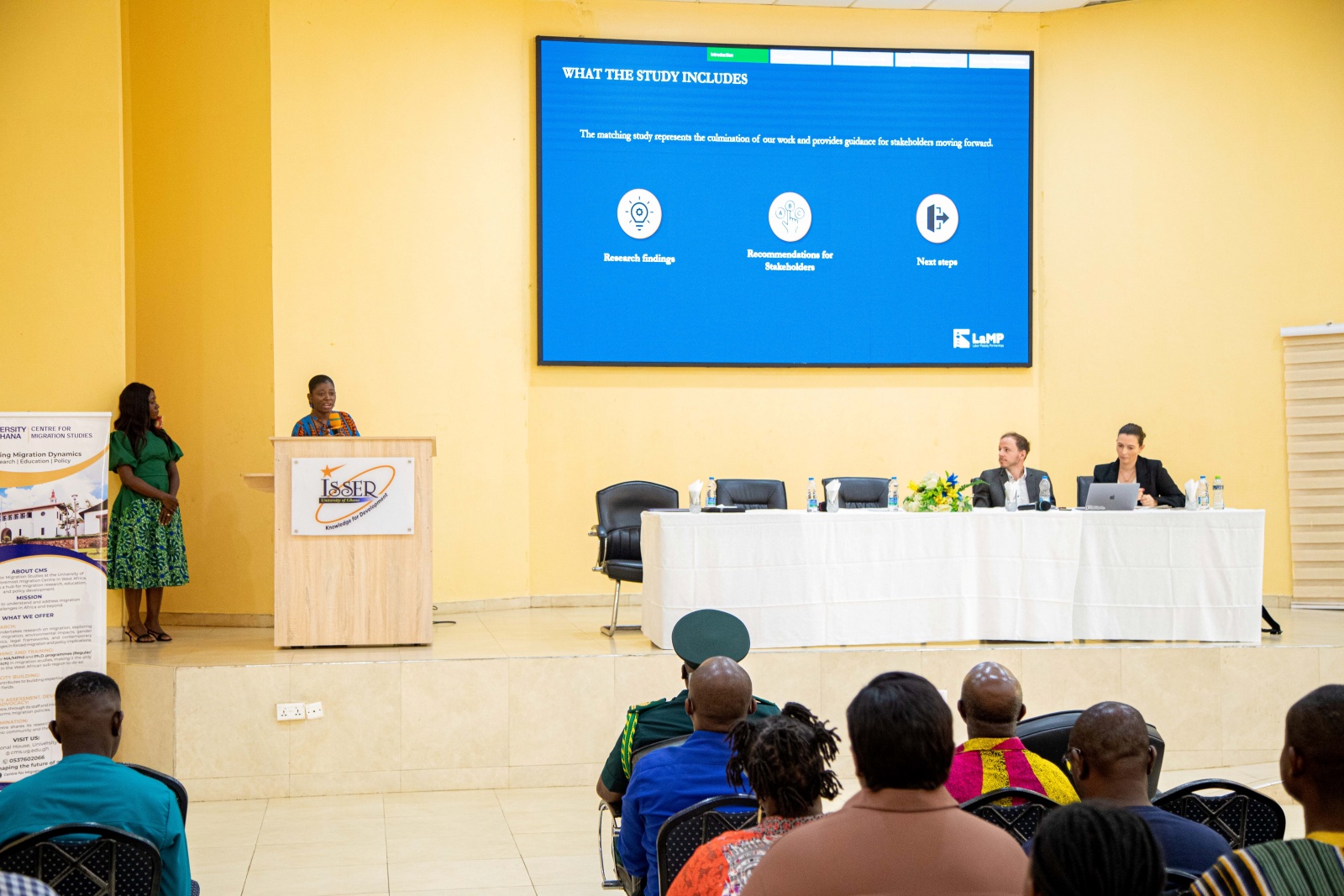
The researchers proposed actionable recommendations, including enhancing Ghana’s Technical and Vocational Education and Training (TVET) systems, integrating German language training into curricula, and establishing bilateral migration agreements. “It’s not just about sending workers abroad; it’s about building a sustainable and ethical framework that protects the rights of migrants while addressing the needs of both economies,” Prof. Setrana emphasized.
Participants at the conference echoed these sentiments. Stakeholders suggested leveraging the National Service Scheme and internships to bridge the gap between theory and practice in Ghana’s education system. Additionally, they called for stronger collaboration with private sector actors and recruiters to ensure successful placements.
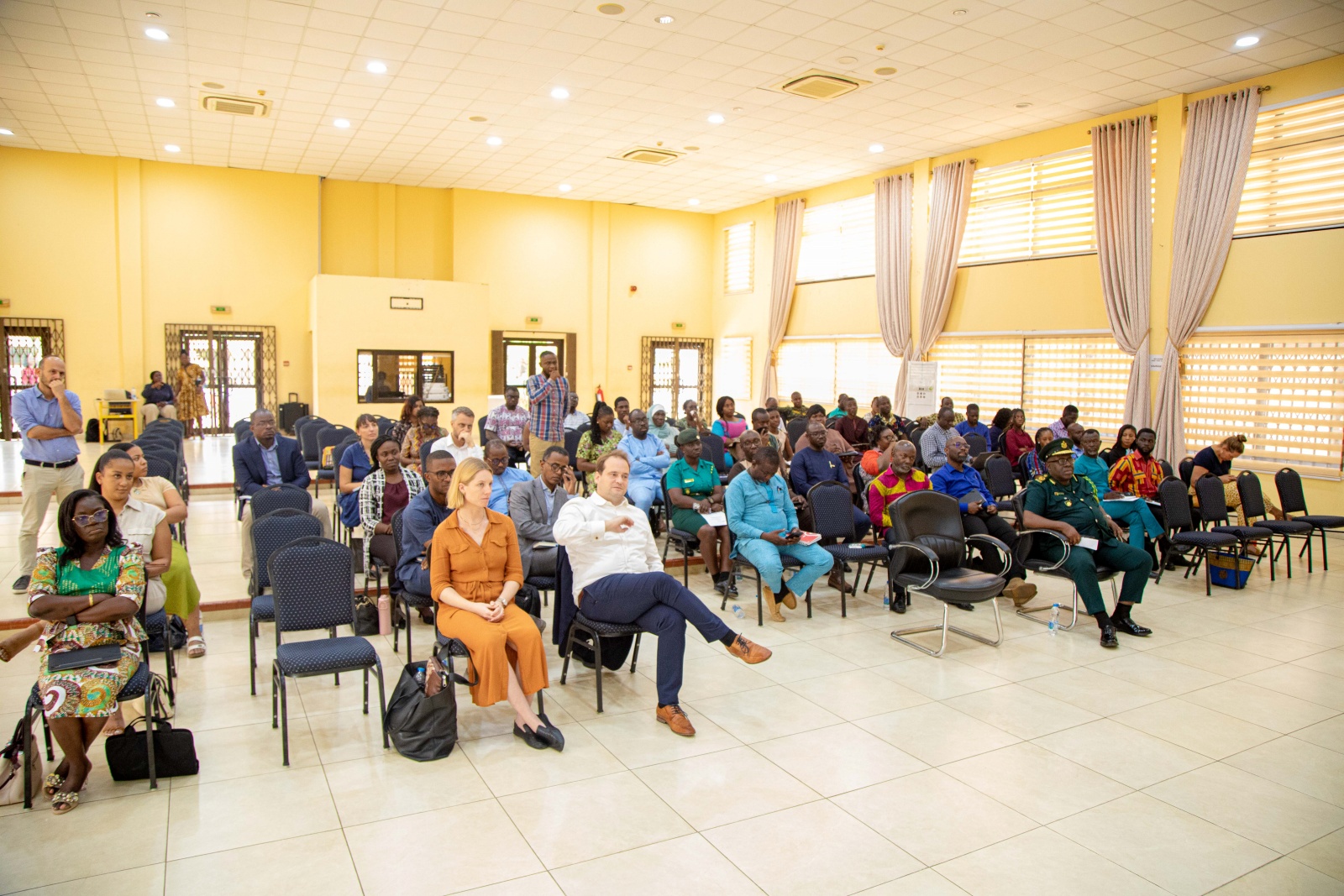
A Path Forward
The findings underscore the urgent need for partnerships between governments, private institutions, and educational bodies. “This matching study is the beginning of a new chapter in labor migration,” said Mr. Owusu Mensah, Deputy Comptroller of the Ghana Immigration Service in charge of Finance and Administration and Chairman of the event. “By addressing the skills mismatch and building sustainable migration pathways, we can unlock opportunities for Ghanaian workers and strengthen Germany’s labor force,” he added.
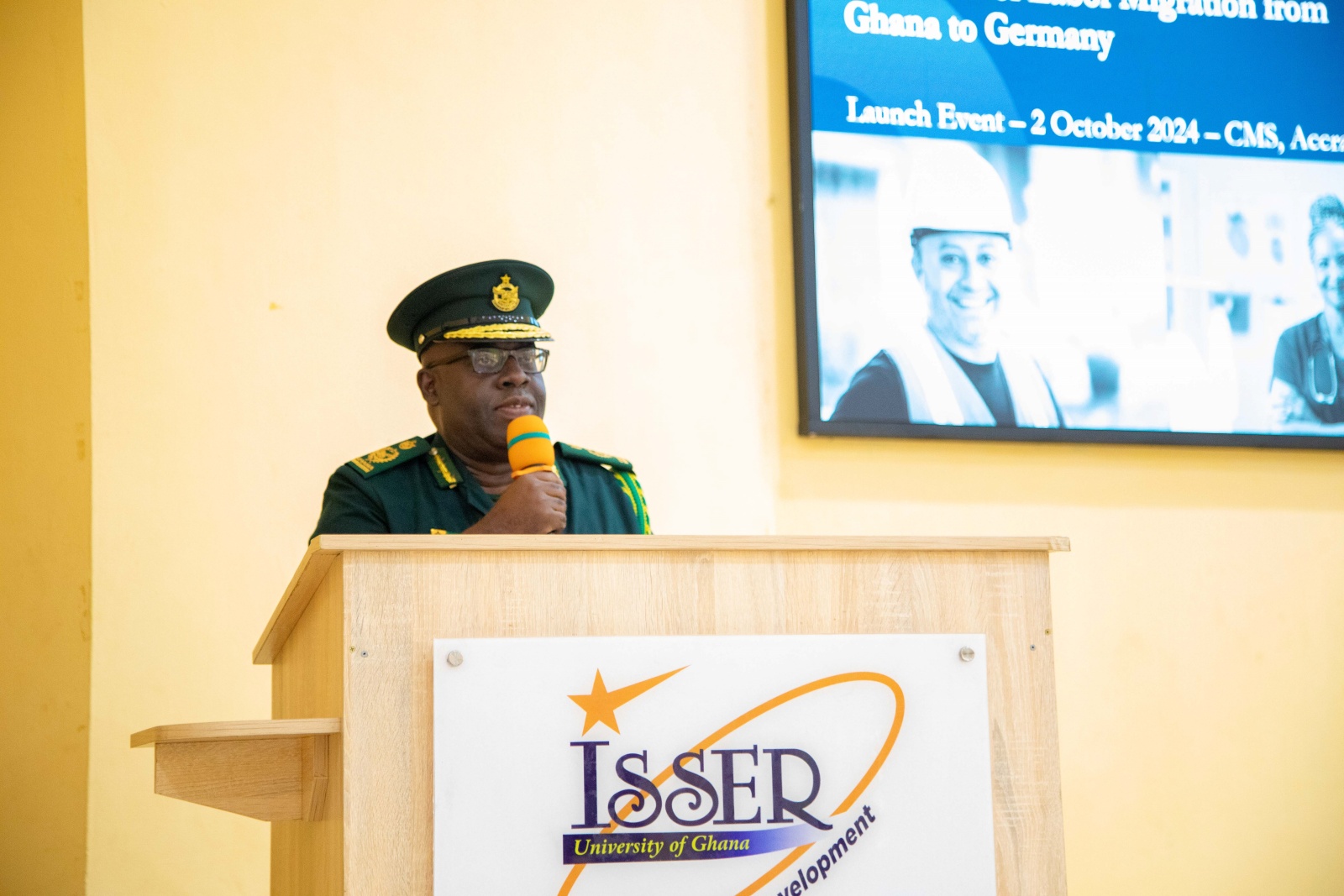
As both nations work towards implementing the study’s recommendations, the potential for Ghanaian workers to contribute to Germany’s economy while alleviating unemployment at home offers a powerful example of how migration can drive development.
The event was attended by a diverse group of stakeholders, including representatives from the Ghana Immigration Service (GIS), labor departments, private employment agencies, educational institutions, development organizations, and the German Embassy in Ghana. Sponsors and collaborators such as the Bundesministerium für wirtschaftliche Zusammenarbeit und Entwicklung (BMZ), the European Union, and GIZ also played a key role in the conference, reflecting a strong commitment to fostering collaboration between Ghana and Germany on labor migration initiatives.

